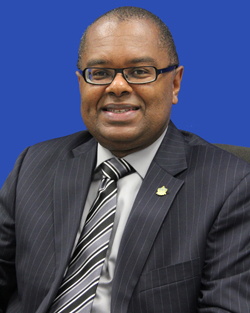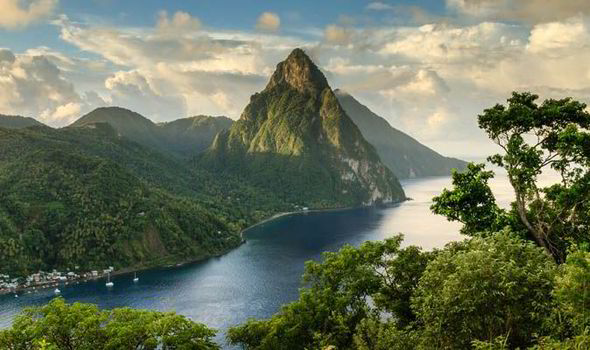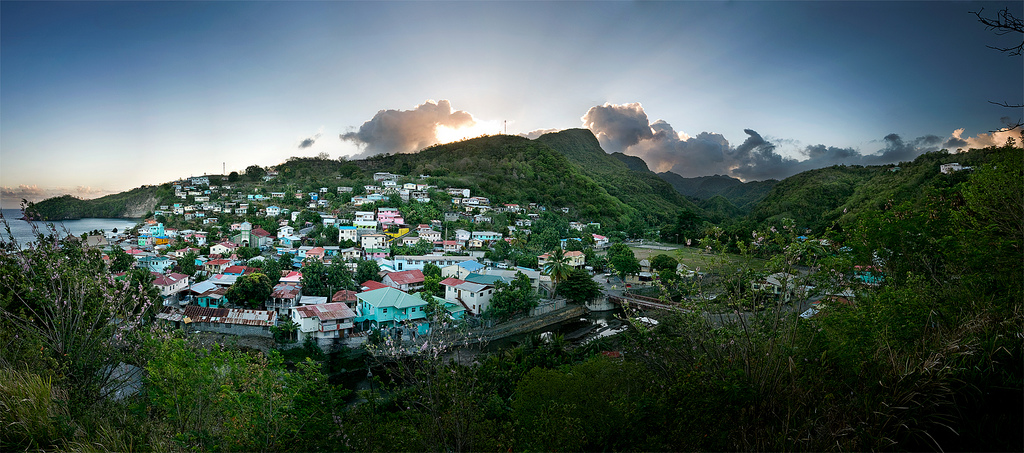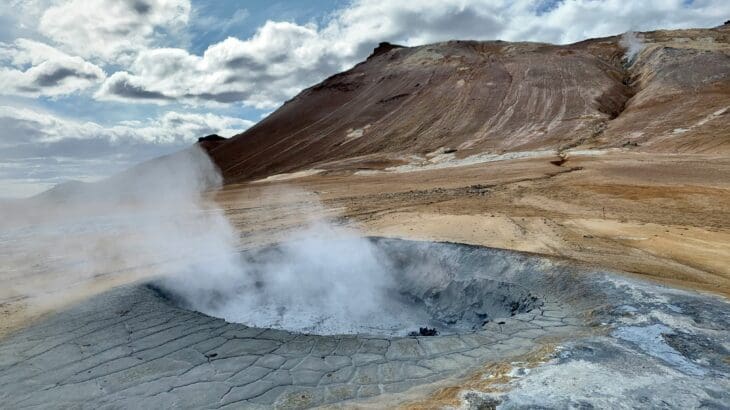Dr. James Fletcher, former Minister responsible for energy policy in the government of St. Lucia, was at the helm of the island’s energy sector during a period of rapid transition. In a candid interview with New Energy Events, Dr. Fletcher reflected on prospects for St. Lucia’s geothermal project, his fears for the impact of climate change on the region, and what he regards as the successes – and the failures – of his government’s efforts to secure long-term energy security for St. Lucia. Finally, as he hands off the baton to the incoming Minister, he lays out his hopes for the future of energy policy for the island nation.
As you look back over the past four years and the state of the St. Lucian energy sector, what do you regard as your biggest successes? With hindsight, what would you have done differently?
Our biggest successes are the complete transformation of the energy sector, including drafting new energy legislation without any rancor or antagonism from the incumbent utility, LUCULEC; moving to a position of being viewed as best practice for energy sector transformation in a Small Island Developing State (SIDS); and securing the support and confidence of international development partners who are providing St. Lucia with financial and technical support to advance our energy agenda.
In hindsight, we could have done more to encourage residential and commercial investments in renewable energy and energy efficiency by removing tax on RE/EE devices and providing tax exemptions for RE/EE investors.
How confident are you that St. Lucia’s geothermal project will make it off the ground? What’s the missing piece?
I am confident that we will be able to develop our geothermal resource. The difference this time is that we ensured we had the support of key development partners assisting with the exploration phase, resource mobilization, and agreements and negotiations with the preferred developer. We secured commitments from the incumbent utility to move the process forward. The preferred developer has the technical and financial wherewithal to make the project succeed. Lastly, the discovery of geothermal resources outside of the UNESCO World Heritage Site removes land use issues and the risk of losing World Heritage status.
St. Lucia still needs to secure finance for the risky exploratory phase. I am heartened by the discussions we have had with the World Bank that we will be able to secure necessary financing at concessionary rates to provide stable energy prices for consumers.
You have issued a strong call for donor coordination over the past few years. Have donors got their act together and are they coordinating?
From the beginning we brought all of our development partners together and suggested where we saw them as being able to offer the greatest assistance. There was some initial friction, but within a short space of time we were able to establish a common pathway for moving forward.
This can be seen in many areas, such as the cooperation among the World Bank, the New Zealand Government and Carbon War Room-Rocky Mountain Institute-Clinton Climate Initiative on geothermal development. You can see it also in the collaboration between the incumbent utility LUCELEC and CWR/RMI/CCI on the National Energy Transition Strategy and the Integrated Resource Plan.
How confident are you that the Paris Agreement will have a positive impact on the Caribbean? What is your single biggest concern as you think about climate change adaptation in the region?
The Paris Agreement was a significant breakthrough for Caribbean and other SIDS. By sending a strong signal that all countries, regardless of size or economic development status, are serious about reversing the trend of increasing greenhouse gas emissions and global temperatures, the Paris Agreement gives hope to Caribbean countries that their future may not be as perilous as it appeared.
My biggest concern is that climate change is projected to reduce water availability in our region by anywhere between 12% and 20%, We will have to change our land use practices very quickly so that we can protect the critical watersheds in our country that are vital to our water security. Moreover, we must aggressively encourage better water capture and storage at all levels, nationally through reservoirs and storage facilities, and domestically through water tanks and better rainwater capture and use.
Is there a role for natural gas in St. Lucia’s energy matrix?
We see natural gas as a transition fuel, at best, and we have not factored it into our energy transition strategy. Our mixture of baseload geothermal power, plus wind and solar PV, will enable us to completely transition our country off fossil fuels. If, however, there is a large scale shift in the transport sector to electric and hybrid vehicles, the new demand created in the electricity sector may carve out a place for natural gas because it is debatable if the renewable resources will be able to service the demand.
How concerned are you about the current situation in Venezuela? If PetroCaribe disappears, what if any are the implications for St. Lucia?
As a country that has provided tremendous and valuable assistance to the Government and people of Saint Lucia, I am concerned about the situation in Venezuela. If Petrocaribe were to dismantle, it would not be a cause for serious direct concern for St. Lucia. We have not, to date, purchased any oil or oil derivatives from Venezuela under PetroCaribe, and have no PetroCaribe debt to Venezuela.
If you were to give one piece of advice to the incoming Minister, what would it be?
It would be to not lose the momentum that we have generated in our energy program. Because of our open, transparent, inclusive and considered approach to the development of the energy sector, we have been able to get tremendous buy-in and support from a wide range of stakeholders and partners, from the incumbent utility company, to local energy interests, to important and influential development partners, to very reputable regional and international investors. That level of confidence must be maintained. Saint Lucia is very well poised to dramatically transform its energy sector, to the extent that this sector can catalyze new economic development, improve the competitiveness of existing enterprises and generate new forms of employment in a growing sector.
The new minister will I hope take the time to find out what is going on, understand the sector he has inherited, meet quickly with the myriad players so that he can get a feel for them and what they bring to the table, but most importantly, hit the ground running and keep the sector moving forward. If he does, then the entire country will benefit.
Join the conversation at the 2016 Caribbean Renewable Energy Forum.



![970px-x-250px-CREF-blue[1]](https://newenergyevents.com/wp-content/uploads/2016/06/970px-x-250px-CREF-blue1-1.jpg)


